World Cup: From refugees to elite footballers
Sign up now: Get the biggest sports news in your inbox
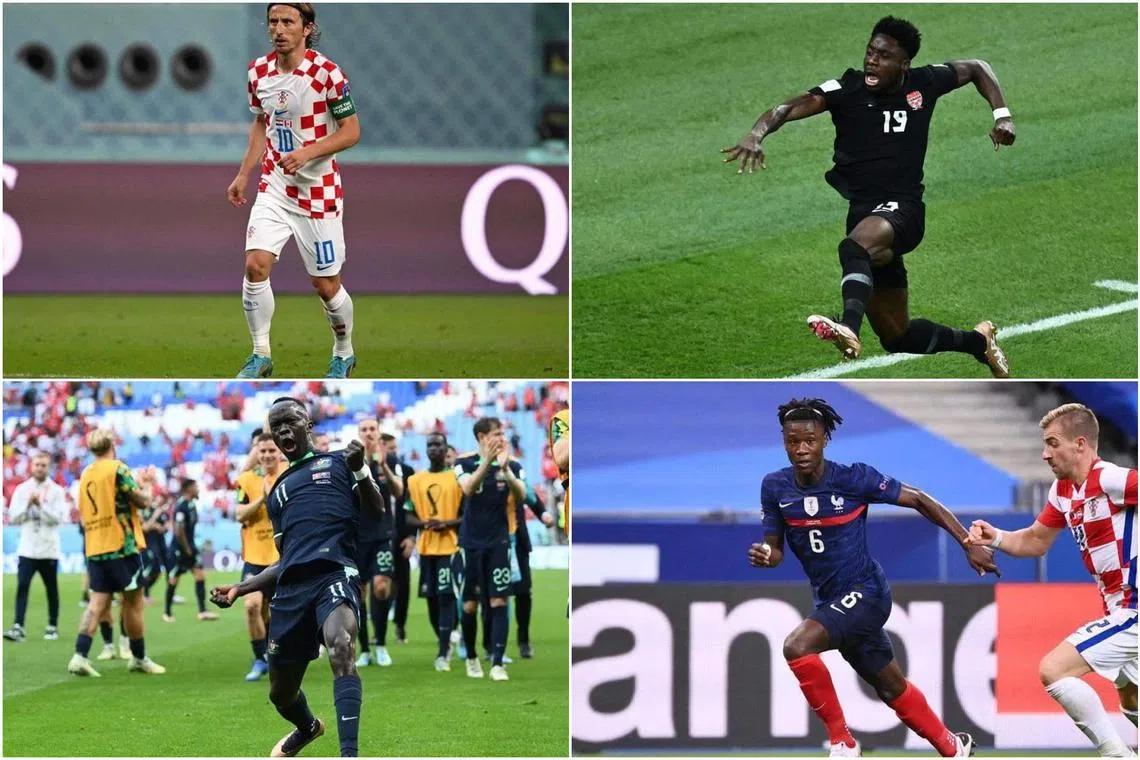
Footballers who have fled war and conflict include (clockwise from top left) Luka Modric, Alphonso Davies, Eduardo Camavinga and Awer Mabil.
PHOTOS: AFP, REUTERS
Follow topic:
SINGAPORE – They may have grown up in tough circumstances but that did not stop these footballers from reaching the sport’s grandest stage. The Straits Times looks at footballers at the World Cup who have fled war and conflict before their football careers.
Luka Modric (Croatia)
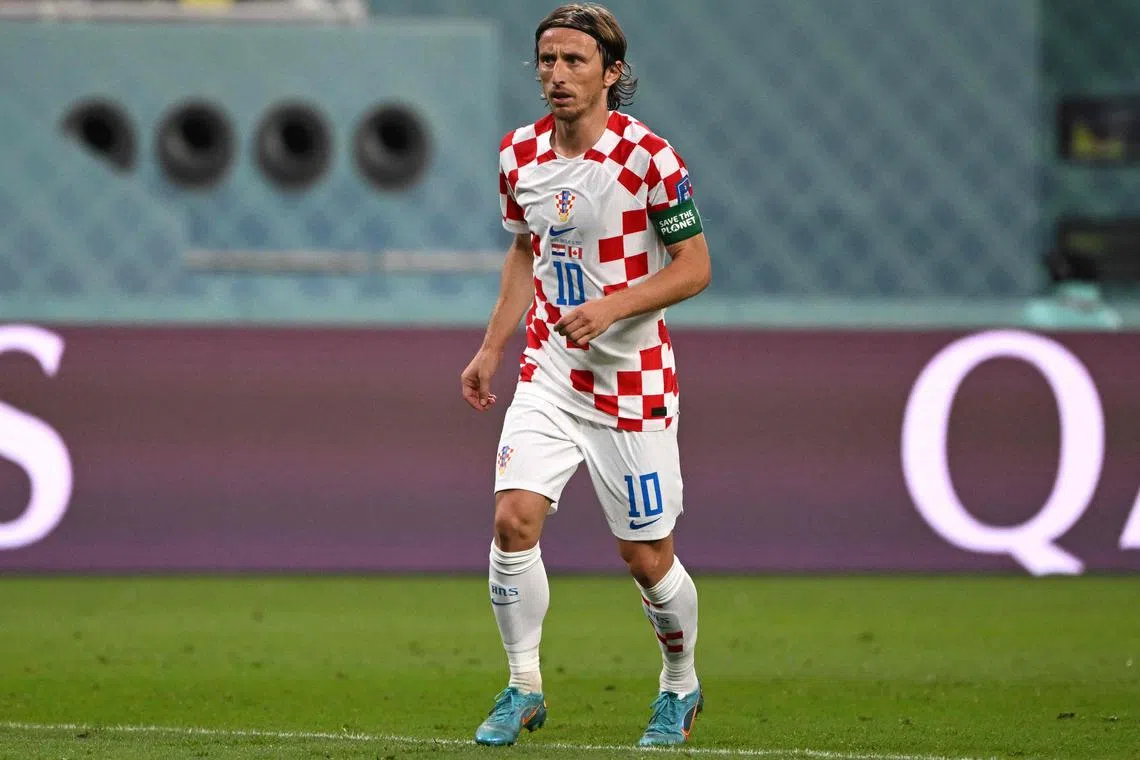
Luka Modric has gone from Croatian refugee to one of the best footballers in the world.
AFP
At the age of six, Luka Modric lost his grandfather, who was killed by Serbian rebels during the Croatian War of Independence.
Modric and his family were forced to flee as the war escalated and he spent much of his childhood living in hotels in the coastal city of Zadar, learning to play football in a hotel car park where he had to be mindful of landmines.
He got his start at Croatian club NK Zadar’s youth team and has gone on to establish himself as one of the best players in the world.
He captained Croatia to their first World Cup final in 2018, which they eventually lost 4-2 to France. He then won the 2018 Ballon d’Or award, breaking the 10-year duopoly of Cristiano Ronaldo and Lionel Messi in the process.
Alphonso Davies (Canada)
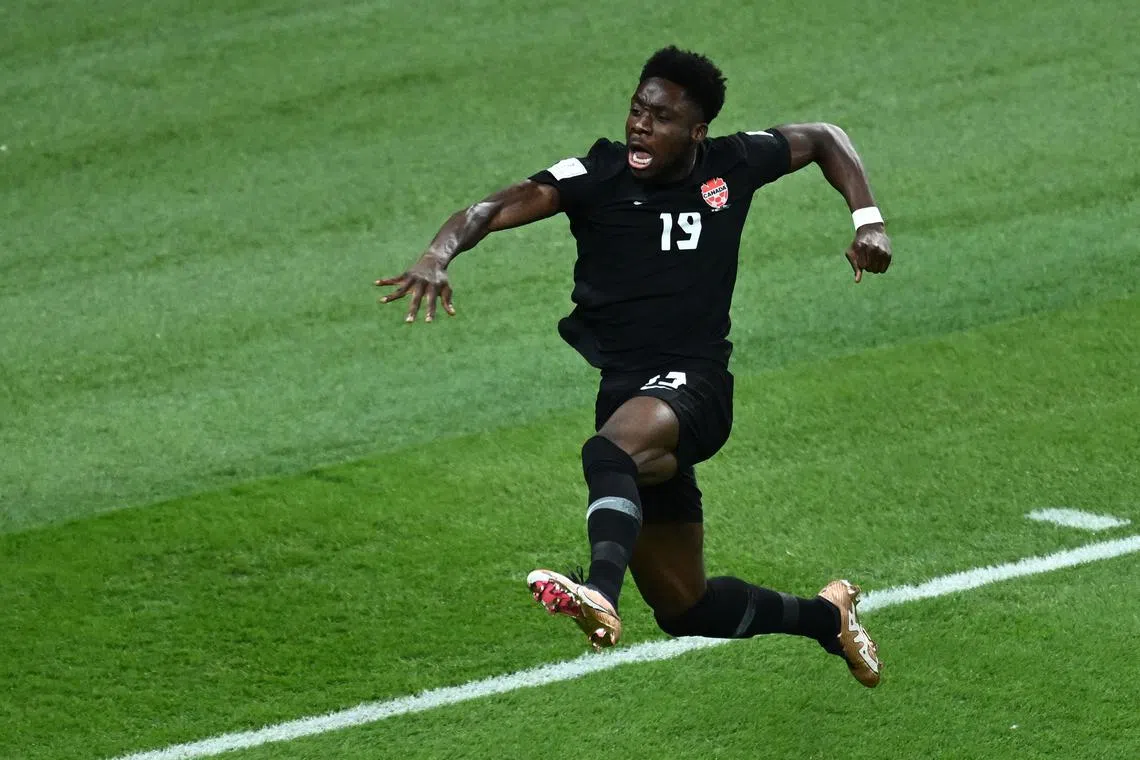
Canada’s Alphonso Davies celebrates scoring Canada’s first World Cup goal in a 4-1 defeat by Croatia on Nov 27.
AFP
Davies was born in Buduburam, a Ghanaian refugee camp, after his parents had fled the civil war in Liberia.
When Davies was five, his family emigrated to Canada and settled in Edmonton, Alberta. Davies’ father Debeah and mother Victoria worked long hours to make ends meet.
He also helped raise his two younger siblings while attending the Mother Theresa Catholic school, where his talent was first discovered.
At 22, he is regarded as one of the world’s best full-backs and has already won the Bundesliga, Champions League and German Cup with Bayern Munich.
In Qatar, Davies, who has pledged to donate his World Cup earnings to charity, scored Canada’s first goal at the tournament in a 4-1 loss to Croatia.
Eduardo Camavinga (France)
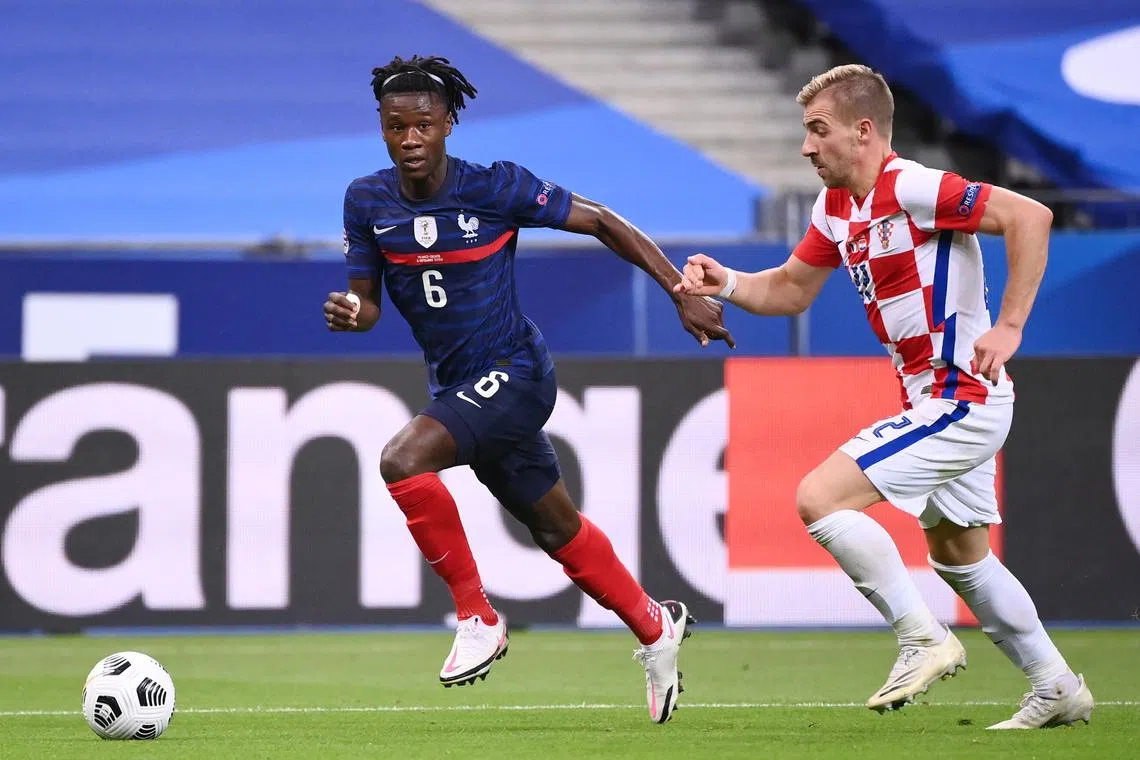
One of the game’s most promising talents, Eduardo Camavinga.
PHOTO: AFP
Eduardo Camavinga was born in a refugee camp in Miconje, a small community in Angola’s Cabinda province.
He was two when his parents, who were originally from the Democratic Republic of Congo, fled the country in the middle of a civil war and became refugees in France.
Nearly two decades later, the 20-year-old is now a Champions League winner with Real Madrid and made his bow at the World Cup for France at this year’s tournament.
The highly south-after youngster became Les Bleus’ youngest goal scorer in over a century when he scored a stunning overhead kick in France’s 7-1 victory over Ukraine in 2020.
Awer Mabil, Thomas Deng and Garang Kuol (Australia)
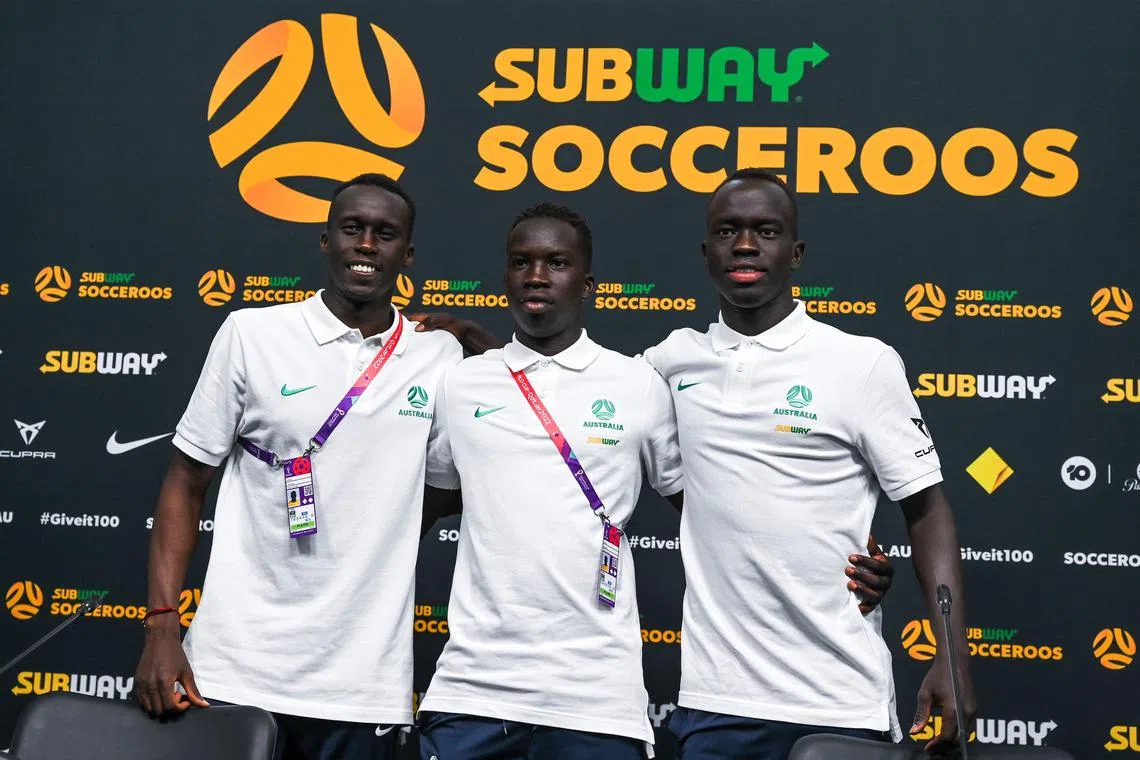
(From left) Australia’s Thomas Deng, Garang Kuol and Awer Mabil pose after a press conference at the Aspire Academy in Doha on Nov 18.
PHOTO: AFP
Australia’s Awer Mabil, Thomas Deng and Garang Kuol were all born to refugee parents from war-torn South Sudan.
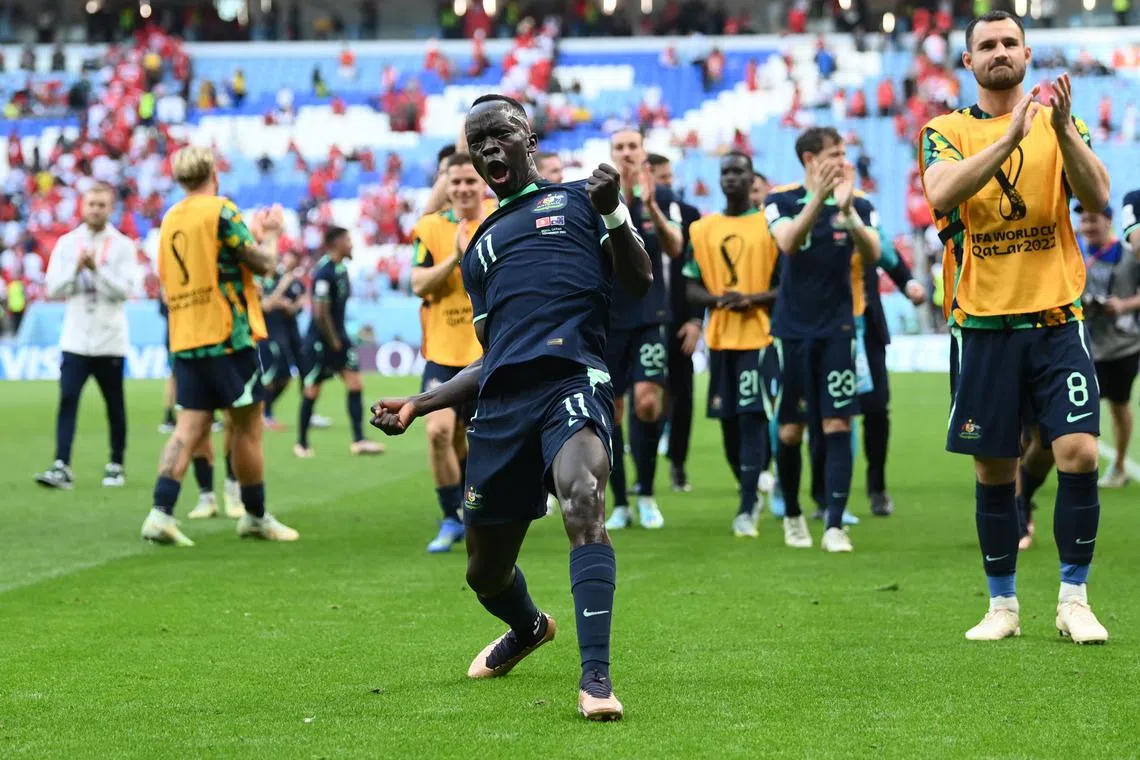
Awer Mabil has gone from playing football on dirt pitches in a refugee camp in Kenya to representing Australia at the World Cup.
PHOTO: REUTERS
Mabil was born in 1995 at the Kakuma refugee camp in Kenya after his parents left their homes to flee conflict and the Second Sudanese Civil War.
He spent the first 10 years of his life in a refugee camp, playing football barefooted on dirt pitches with a ball made of plastic bags.
His family then relocated to Adelaide, Australia, and it was Mabil’s winning penalty against Peru at the inter-confederation play-off match that sent Australia to this year’s World Cup.
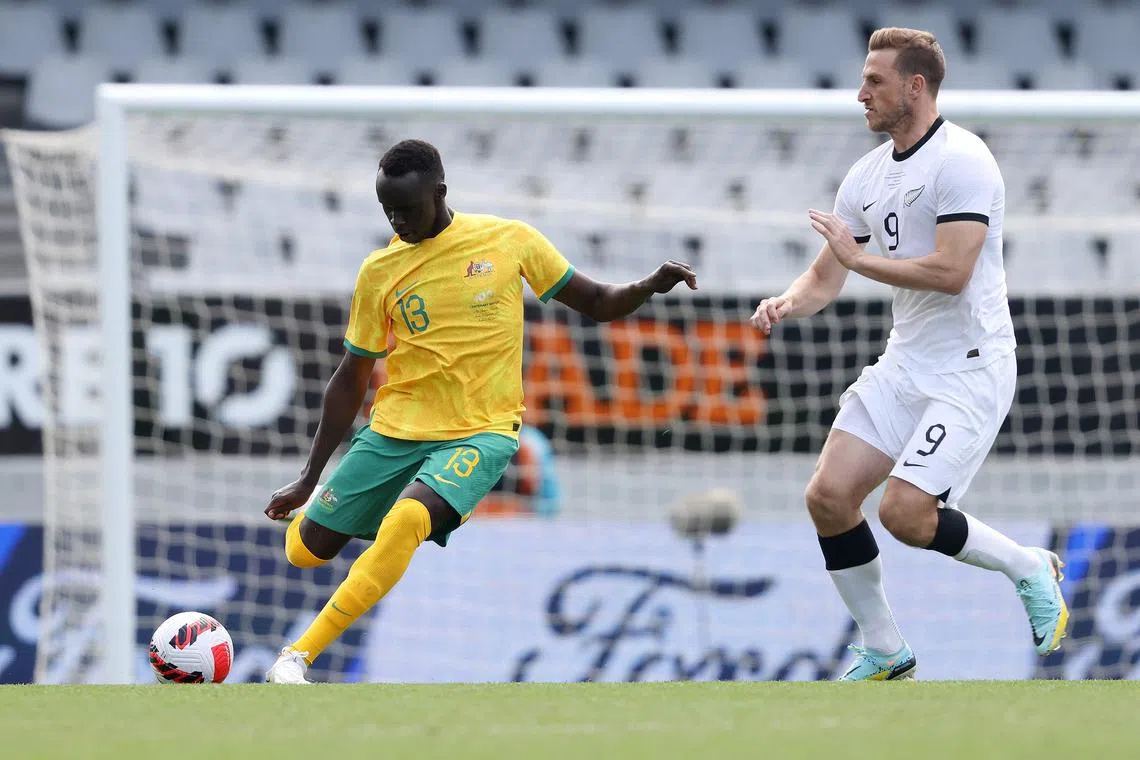
Australia’s Thomas Deng (left) and New Zealand’s Chris Wood fight for the ball during a friendly international football match in September.
PHOTO: AFP
Deng, 25, was also brought up in Kenya by parents running away from the conflict in South Sudan, while 18-year-old Kuol was still a baby when his refugee family settled in Australia. The latter is set to join English Premier League side Newcastle United in the January transfer window.
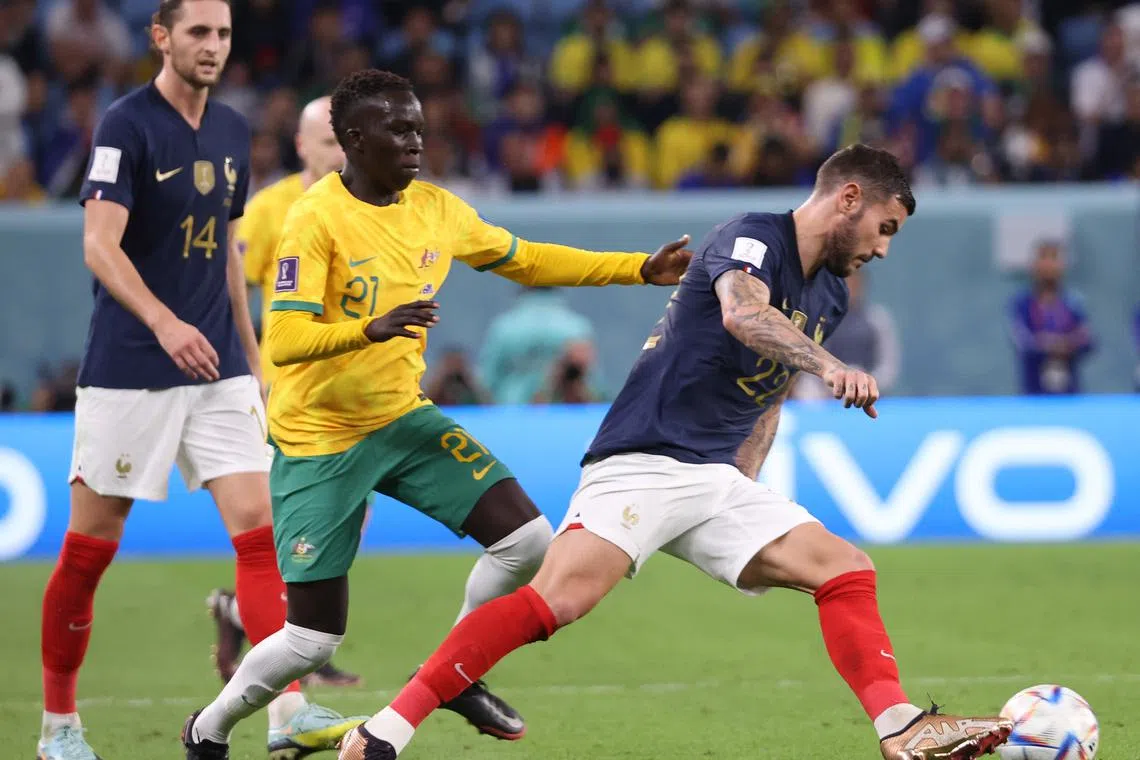
Garang Kuol is regarded as one of Australia’s brightest talents and looks set to sign for Newcastle United in January.
PHOTO: EPA-EFE

